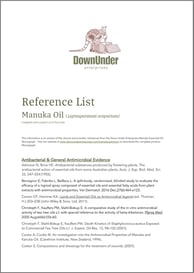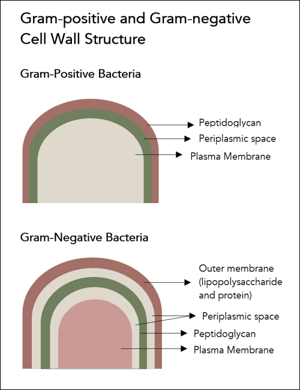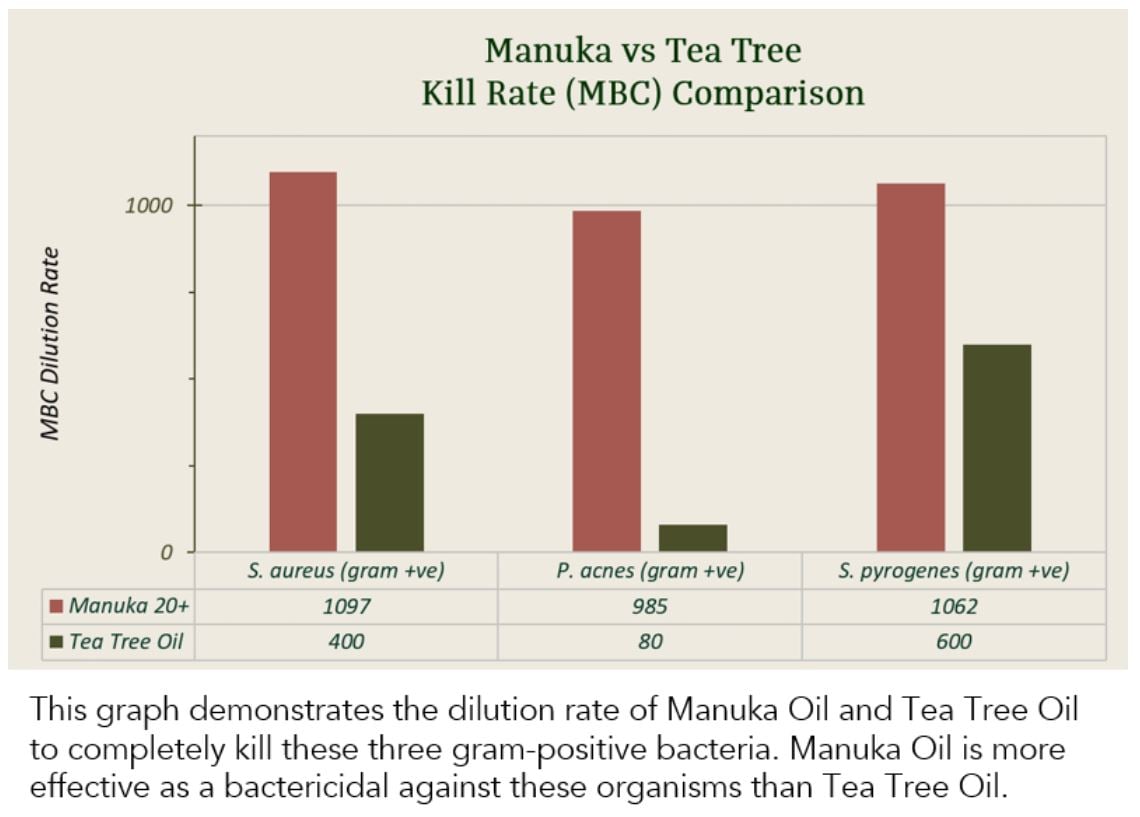Manuka Oil - 99.9% Microbial Kill Rate
Up to 1500x greater than Tea Tree Oil for gram positive bacteria
 We have compiled a compendium of scientific, peer-reviewed papers and book references that support the 99% kill rate claim.
We have compiled a compendium of scientific, peer-reviewed papers and book references that support the 99% kill rate claim.
This compendium also contains studies evaluating Manuka Oil's efficacy when combined with Australian Tea Tree Oil.
Download the Manuka Reference List
|
Still wondering the difference between Manuka Oil and Manuka Honey? |
Is Manuka Oil better than Tea Tree Oil?

A review of bacterial types
Bacteria can be classified based on the chemical and physical properties of their cell wall structure. Their reaction to a gram stain identifies them as either a gram-positive (+ve) or a gram-negative (-ve) type.
Interestingly, various Essential Oils have varying efficacy against each types of bacteria. Our friend, Manuka Oil, is a clear winner for gram positive bacteria.
The power of Manuka Oil has been scientifically demonstrated and published in numerous peer-reviewed and published studies. Scientifists have related Manuka Oil's efficacyto its β-Triketone components. These unique compounds occur naturally in Manuka Oil.
The natural compound with the greatest abundance of β-Triketones, by far, is Manuka Oil. The specific β-Triketones found in Manuka include flavesone, leptospermone, iso-leptospermone and grandiflorone.
Common Gram Positive Bacteria
|
Manuka Oil has shown to be more effective than Tea Tree Oil when comparing its Bactericidal (MBC) data against a wide range of gram positive bacteria.

|
These unique β-Triketone compounds found in Manuka Oil, and the associated antibacterial efficacies, have been reported extensively in the literature. Researchers from the prestigious Institut für Pharmazie, Pharmazeutische Biologie, Universität Hamburg, Hamburg, Germany and Institut für Medizinische Mikrobiologie und Immunologie, Universitäts-Krankenhaus Eppendorf, Hamburg, Germany published a paper in Planta Med (2000). The authors cited: |
|
"The best inhibitory effects on Gram-positive bacteria and dermatophytes were achieved with manuka oil due to its β-triketone content." Christof et al, Planta Med 2000 |



No Comment